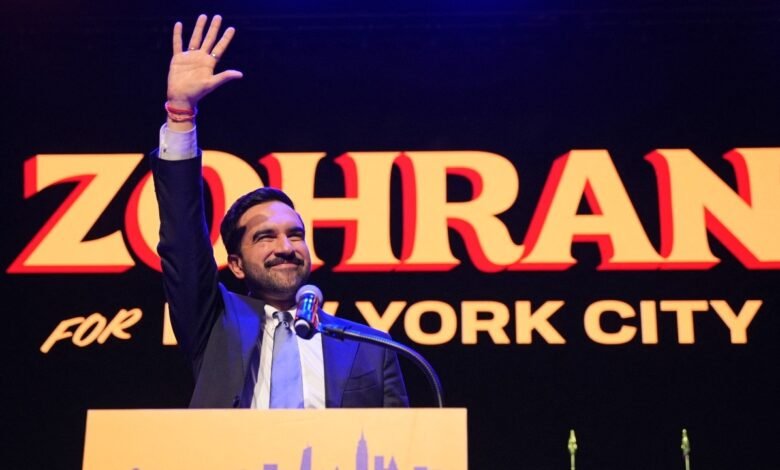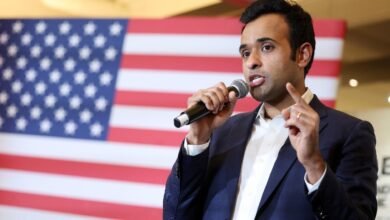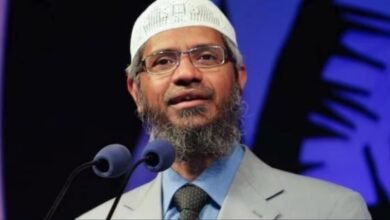Zohran Mamdani’s election a silent revolt of Gen Z

Zohran Mamdani’s election a silent revolt of Gen Z
Zohran Mamdani’s election as New York City’s mayor is a resounding rejection of Donald Trump’s politics of anti-immigration, Islamophobia and financial coercion. But, beneath the seismic change in US politics is yet another Gen Z revolution, but of a different kind.
NEW FORM OF GEN Z ACTIVISM
The recent Gen Z protests that toppled governments in Bangladesh, Nepal and Madagascar had many similarities. They were leaderless street protests triggered by spontaneous digital eruptions and rage-fuelled demands for immediate accountability.
But Mamdani’s campaign reflects a subtler, more infrastructural insurgency. It was a “silent revolt” of a generation tired of division, and yearning for community, purpose and progressive governance.
Rather than a volcanic outburst, this was a long-haul build: young volunteers, small-dollar donations, digital coordination, and the framing of electoral politics as community-building.
As the New York Times argues: “Addicted to their screens, strapped for cash, spiritually unmoored and socially stunted by the pandemic, young New Yorkers needed a reason to get out of the house. They found it in Zohran Mamdani’s mayoral run.”
A CURE FOR LONELINESS
Mamdani’s campaign appealed to voters because of the underlying outrage against established politics and divisive rhetoric. But its main draw were Mamdani’s bold, pragmatic solutions to the issues shaping their daily lives: housing affordability, economic uncertainty, climate change, and social isolation –the issues that shape their daily lives.
In contrast to Trump’s bombastic, fear-driven style—smears, threats, identity-based slurs—Mamdani’s approach embodied a Gen Z demand for inclusive governance rooted in equity and justice.
THE DOUBLE ENGINE IMPACT
Mamdani’s campaign, launched as a longshot in late 2024 when polls showed him in single digits, mobilised tens of thousands of volunteers, relied on small-dollar donations, and leveraged social media to build a diverse coalition across progressive elites, Gen Z and South Asian communities.
This had two effects. One, it encouraged Gen Z participation in the campaign, turning canvassing shifts and volunteer nights into a social lifeline for a generation grappling with post-pandemic loneliness. Young New Yorkers found connection, meaning and agency inside a campaign that spoke to them.
Two, it led to a surge in voting. As The New York Times observed, the surge of voters under 35 helped lower the median age of the electorate and gave Mamdani the edge in progressive strongholds.
Mamdani secured over 50% of the vote in a contest that saw unprecedented turnout. More than two million ballots were cast, the highest since 1969, with early voting surging to over 735,000, driven largely by young and first-time voters.
TRUMP POLITICS REBUKED
Mamdani is the first Muslim mayor of New York City—and only the second in US history to openly identify as a democratic socialist after David Dinkins (1990–1993).
Additionally, as the first South Asian mayor and the youngest in over a century, Mamdani’s Ugandan-born background adds layers of immigrant narrative to the role. Born to parents of Indian descent, he arrived in the US as a child and rose through the grassroots, identifying himself with the Democratic Socialists of America.
In an America marked by Islamophobia, anti-immigration, and white supremacy, Mamdani’s win—despite facing smears labelling him a “jihadist” or “radical” from figures like Donald Trump, Elise Stefanik, and Elon Musk—affirms the resilience of marginalised and progressive voices in democratic processes. It also highlights the growing electoral power of South Asian communities, which turned out in unusually high numbers.
A DECISIVE LEFT TURN
Trump’s Republican candidate hobbled out of the race in the early stages. So, in the end, the election turned into a proxy battle for the soul of the Democratic Party.
Mamdani’s closest rival, Andrew Cuomo, a three-term governor’s son who resigned in 2021 amid sexual harassment scandals, lost the Democratic primary to Mamdani. Yet he entered as an independent, and was later backed by a desperate Trump. Mamdani’s win, endorsed by stalwarts like Bernie Sanders, signals the rising clout of the party’s left flank.
Beyond New York, Mamdani’s victory signals major upheavals in traditional US politics. Its impact would be felt not just on the Republican politics of hate and coercion, but also in the Democratic primaries for the next US president.
Yet, amidst all these subplots, the real message of Mamdani’s victory is a clear rejection of Trump’s vision for America, amplified by Gen Z’s refusal to accept a politics that thrives on fear and exclusion.
But the difference is, this revolt was fuelled by hope and connection rather than anger alone, proving that the political awakening of Gen Z is multifaceted, sophisticated, and rooted in collective causes.
– Ends
Tune In
Source link



